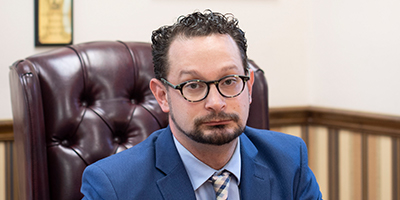Lake Wallenpaupack Trusts Attorney
A trust is an estate planning tool that helps many of our clients achieve their objectives. Many people wrongly think that only the rich need a trust, but the fact is that many people will benefit, depending on their circumstances. Trusts can be funded during your life or at death, and there are benefits to each approach. Rather than assume a will is all you need in your estate plan, reach out to a Lake Wallenpaupack trusts attorney to discuss your situation.
How is a Trust Different from a Will?
The primary difference is that trusts do not need to go through probate. Probate is a public process, so any member of the public has access to your will. Probate can also take a long time, depending on the estate, and your beneficiaries might have to wait a long time before they get possession of your assets. People who value privacy or who want to speed up the administration of their estate can use a trust. What Exactly is a Trust? A trust is a legal relationship between three people:
- The settlor, who puts property into the trust
- The trustee, who manages the trust assets
- The beneficiary, who will benefit from the trust, typically by receiving assets or income
If you create a trust while you are alive, you change the title of assets into the name of the trust. This means you no longer own the property—the trust does. You can also serve as both settlor and trustee in many cases. Some trusts are revocable, meaning you can undo them if you change your mind, but others are irrevocable.
What are Different Types of Trusts?
There are dozens of different trusts you can create, all of which help our clients achieve different estate planning objectives. One reason to reach out to a Lake Wallenpaupack trust lawyer today is to discuss your goals and help find the right trust for you. Some of the more common trusts include:
-
Special needs trust. If you leave property to a disabled loved one, you might make them ineligible to receive government benefits. By creating a special needs trust, they can still qualify.
-
Charitable trust. This trust is created with a charity as the beneficiary. Charitable trusts can help reduce your tax liability.
-
Personal residence trust. A settlor can put their residence into the trust and give themselves the right to live in the trust for a certain number of years.
-
Standby trust. This trust is usually created in the event you become incapacitated.
These are only a few of the trusts available. Speak to an experienced trust attorney to identify your options.
Experienced Legal Guidance
At Farley & Weed, LLC, we are experienced at using trusts as part of a comprehensive estate plan. We can listen to you explain what you hope to accomplish with your estate plan and then decide whether a trust is right for you.
For more information, or for answers to any questions you have, please contact us today. We offer potential clients a free consultation, which they can schedule by reaching out to us.



